|
You're entitled to your own opinion. But you are not entitled to your own facts. Which is why I'm taking the time to point out some of the reasons that words are not violence -- and that there is truth to the old rhyme, "Sticks and stones can break my bones, but names will never hurt me."
Last week on Quora, I answered the question, "Why is it so hard not to care what others think of you?" I thought my answer was pretty cool -- and it got 21,000 views and 83 upvotes. Not bad, right? Among other things, I quoted my old post, Unless You're a Psychopath, You Are OBSESSED With What Others Think of You, as well as Gossip Isn't Petty. It's a Powerful Evolutionary Tool. Both of which touched on the idea that, from an evolutionary perspective, how we perceive ourselves (self-esteem) isn't nearly as important as how others perceive us. People liking us -- or, at least, not disliking and distrusting us -- was crucial to our survival. The ability to form large groups using mankind's first scalable technology (gossip) is what allowed humans to spread across the earth. So memes like this:
are fun. But they're not entirely accurate. (Read more.)
Of course, there are ways to feel less aware of that others might be thinking about us. That's why I wrote 3 Proven Ways to STOP Caring What People Think About You and Live a Happier Life. Basically, practicing things mindfulness and being present keep you in a state of flow -- the idea is to become immersed enough in what you're doing that other people's opinions are the last thing on your mind.
When I got yanked up onstage with the Moustache Brothers, former political prisoner and comedians in Mandalay, Myanmar, I got so caught up in the performance, I didn't care what anyone thought. And then we had this impromptu "romantic moment."
I also wrote about cognitive reframing — which is, according to both me and charisma expert Olivia Fox Cabane, one of the most powerful psychology hacks ever invented. Basically, reframing means forcing yourself to imagine a situation in a more positive light — even if that light is entirely fictional. Our minds are terrible at distinguishing fantasy from reality, so part of your brain will think your fairy tale is real. This will reduce your anxiety and help you feel better. For example, say someone calls you ugly. You can feel bad or mad. You can have a panic attack or let it ruin your day. You can follow in the footsteps of Lindy West and other personalities who have quit Twitter. Or... you can cognitively reframe. For example. I recently wrote 7 Reasons I Feel Sorry for People Who Call Me Ugly. I wrote it because I think it's important for people -- especially women -- to own their shit. To be confident (confident people get more money and promotions and ask for higher salaries). To self-promote (if you want to get ahead in life, don't check your privilege -- check your ego; without shameless self-promotion, other people are going to take credit for your work.) And, even, to #ChooseBeautiful. But maybe, unconsciously, I was cognitively reframing. Maybe I've unconsciously adopted this strategy to deal with the inevitable hateful comments you receive, both in life and online. Does it matter? Either way, when people call me names, I feel sorry for them, instead of myself. And one of the reasons why (which I quoted in my Quora answer) was: 1. They have a powerless, victimhood mindset. They think they can hurt my feelings by calling me ugly -- which, as anyone who’s seen my Instagram knows, I'm clearly not. (Like I said: #ChooseBeautiful) They would only try to hurt me in this way because they are so insecure about their own appearance and self-worth... that being called ugly by an anonymous stranger on the internet would hurt them tremendously. That's sad for them! They think that calling me a name will hurt me, because they can't imagine what it's like to have a positive body image and healthy self-esteem. Can you imagine living with such a powerless, victimhood mindset, where people you don’t even know can control how you feel? I can't imagine it. I truly can't. Read more >
They can call me whatever they want — but I’m glad I have a stronger mind (and, probably, body) than they do.
This is the part of my answer that most (and by most, I mean two -- but still) of the people who commented had an issue with. One wrote, "What puzzles me is why then people keep quoting this crap that “other people can only hurt you if you allow them”. Yes, you can choose not to listen, but it’s incredibly hard because people are social animals. It’s like conselors [sic] telling jobless people how Onassis managed to get rich by being stubborn." To which I replied: "Not really. Decades of psychology research show how powerfully our theories about things like intelligence (e.g., growth vs. fixed mindset), emotions, and other people’s expectations for us (e.g., Rosenthal's academic spurters) shape our performance, resilience, and behavior.
If your current mindset, which you’ve most likely learned unconsciously, is that other people can hurt you with their words, or that words are “violence” or whatever, then that is your reality.
But it's not reality. You can learn or teach yourself otherwise -- and reclaim power and confidence in your life. You can feel agency, instead of helplessness. A better analogy, in my view, would be, “It’s like offering refugees and survivors of disasters ‘grief counseling,’ instead of teaching them how to apply for visas and editing their resumes with them.” Because there are several examples of mental health workers visiting places like Bosnia and Rwanda… and the survivors there being totally confused about why they were supposed to talk about pain and grief and bad experiences, when they were there for practical help. Similarly, veterans report fewer symptoms of PTSD when they have assistance getting a job and getting involved in community organizations than when counselors ask them to tell painful stories over and over again, instead of providing actionable advice on how to improve their lives. Sally Satel and Christina Hoff Sommers discuss this extensively in their amazing book, One Nation Under Therapy: How the Helping Culture is Eroding Self-Reliance." Another comment said: Telling someone they are “letting” things upset them, only makes them feel guilty & weaker. I hope you don't tell your patients to not “let” things get to them. I quit therapy because they kept saying that, it only made me feel weaker (which I didn't think was possible). No one “lets” things get to them, it's just natural to get upset. We try to learn from our mistakes but we never try to get upset in the 1st place. If it were that easy to control our brain, no one would ever get upset & mental illnesses like depression wouldn't exsit. People who were born with mental illnesses have less or no control. Yes, I know. I already said that everyone cares what others think about them. Accepting yourself for who and how you are is kind of the first step towards happiness and self-improvement. It's the entire basis of F*ck Feelings: One Shrink's Practical Advice for Managing All Life's Impossible Problems, by Michael Bennett. That said, yes, we all care what others think of us (unless we're psychos or sociopaths)... but I also discussed several ways to care less. Nevertheless, I thought it was important to address the idea that people are helpless, powerless recipients of others' actions and words: "That’s one way of looking at it. But another way is, 'Telling people that words and thoughts can hurt them makes them think they are weak. Telling them they are powerless and there is nothing they can do to regulate their emotions or control their responses to difficult situations… makes them feel powerless.' In the moment, it feels good to be validated. But I would prefer to receive developmental feedback about how to become more present, to cognitively reframe, and to overcome feelings I struggle with." After all, it's total bogus that "men want to fix their problems, and women want people to listen to them whine about their problems". Sometimes, men and women want validation. Sometimes, men and women want advice. And, if someone freaks out about a word or an unintended "microaggression" or whatever... they might benefit from this advice. Especially considering some of the information in Jonathan Haidt and Greg Lukianoff's recent Atlantic article, Why It's a Bad Idea to Tell Students Words are 'Violence': Of all the ideas percolating on college campuses these days, the most dangerous one might be that speech is sometimes violence. We’re not talking about verbal threats of violence, which are used to coerce and intimidate, and which are illegal and not protected by the First Amendment. We’re talking about speech that is deemed by members of an identity group to be critical of the group, or speech that is otherwise upsetting to members of the group. This is the kind of speech that many students today refer to as a form of violence... We are not denying that college students encounter racism and other forms of discrimination on campus, from individuals or from institutional systems. We are, rather, pointing out a fact that is crucial in any discussion of stress and its effects: People do not react to the world as it is; they react to the world as they interpret it, and those interpretations are major determinants of success and failure in life. As we said in our [previous] Atlantic article: "Rather than trying to protect students from words and ideas that they will inevitably encounter, colleges should do all they can to equip students to thrive in a world full of words and ideas that they cannot control. One of the great truths taught by Buddhism (and Stoicism, Hinduism, and many other traditions) is that you can never achieve happiness by making the world conform to your desires. But you can master your desires and habits of thought. This, of course, is the goal of cognitive behavioral therapy." We wrote those words in early 2015. We were responding to stories from across the country about new demands that students were making for protection from the kinds of offensiveness that Feldman Barrett says are “not bad for your body or brain.” We explained why we thought that widespread adoption of trigger warnings, safe spaces, and microaggression training would backfire. Rather than keeping students safe from harm, a culture of “safety” teaches students to engage in some of the same cognitive distortions that cognitive-behavioral therapy tries to eliminate. Distortions such as “emotional reasoning,” “catastrophizing,” and “dichotomous thinking,” we noted, are associated with anxiety, depression, and difficulty coping. We think our argument is much stronger today, for two reasons. First, our article was published in August of 2015, a few months before a wave of campus protests began at Missouri, Yale, and dozens of other schools. Those protesters usually demanded that their universities implement an array of policies designed to keep students “safer” from offense—policies such as microaggression training supplemented by the creation of systems for reporting and punishing microaggressors, along with the creation of more ethnic- or identity-based centers. We expect that these policies—whose effectiveness is not supported by empirical evidence—will, in the long run, lead students to feel even less “safe” on campus than they did in 2015, because they may increase the number of offenses perceived while heightening feelings of identity-based division and victimization. Some evidence also suggests that diversity training, when not carefully and sensitively implemented, can create a backlash, which amplifies tensions. Second, we wrote our article at a time that saw hints of a mental-health crisis on campuses, but no conclusive survey evidence. Two years later, the evidence is overwhelming. The social psychologist Jean Twenge has just written a book, titled iGen: Why Today's Super-Connected Kids Are Growing Up Less Rebellious, More Tolerant, Less Happy -- And Completely Unprepared for Adulthood (and what that means for the rest of us), in which she analyzes four large national datasets that track the mental health of teenagers and college students. When the book is released in August, Americans will likely be stunned by her findings. Graph after graph shows the same pattern: Lines drift mildly up or down across the decades as baby boomers are followed by Gen-X, which is followed by the millennials. But as soon as the data includes iGen—those born after roughly 1994—the rates of anxiety, depression, loneliness, and suicide spike upward. I've said it before, and I'll say it again: People rise (and fall) to meet the expectations you set for them. If you act like it's totally reasonable and normal for them to fly off the handle because someone said something mean about them online, or because someone accidentally committed some sort of "microaggression"... you're doing them a much bigger disservice than the person who committed the alleged offense. If you care about the people you care about... empower them. Set high expectations for them. Help them be better. Want to know more? Check out:
6 Comments
Jadzia
7/24/2017 12:57:48 am
I've just ordered a copy of "Fuck Feelings".
Reply
7/28/2017 04:46:56 pm
Wow -- seriously?! What a monster! I hope that guy's found himself a nice comfy jail cell somewhere...
Reply
Jadzia
7/29/2017 02:58:37 am
Thanks. This site has helped me a lot. I am in the process of recovering from a chronic illness that has blighted my life and I have found your recommendations very helpful. The cognitive reframing was especially good. I had CBT many years ago so knew the technique but I hadn't realised that you can use it with things that you know to be fictional. I've enjoyed boosting confidence by coming up with absolutely ludicrous things and finding it lifts my mood. 7/28/2017 04:40:10 pm
Thanks for the feedback. That's something I've been playing around with. The thing is, since I'm using more of a drag-and-drop platform than web-editing/html, what I gain in ease I lose in options.
Reply
Dee
7/29/2017 08:54:56 pm
Advice is calibration. Some people are too far to one end of a spectrum, and some are too far to another. The advice you'd give to the first set is the opposite of the advice you'd give the second. ("Chill out" vs. "take your life seriously", "stand up for yourself more" vs. "stop stomping on others" etc.)
Reply
Leave a Reply. |
About the Author

Eva is a content specialist with a passion for play, travel... and a little bit of girl power. Read more >
Want to support The Happy Talent? CLICK HERE!
Or Find me on Patreon!
What's Popular on The Happy Talent:
Trending in Dating and Relationships:
What's Popular in Science: Playfulness and Leisure Skills:
Popular in Psychology and Social Skills:
Categories
All
|

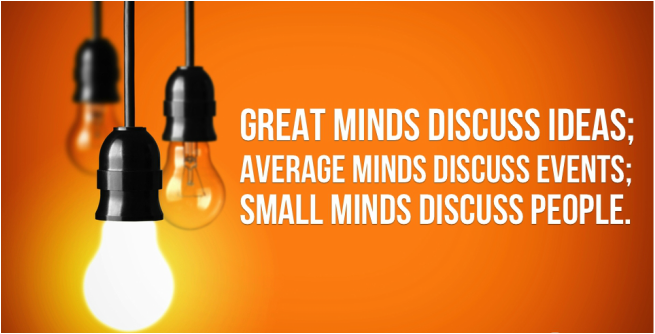
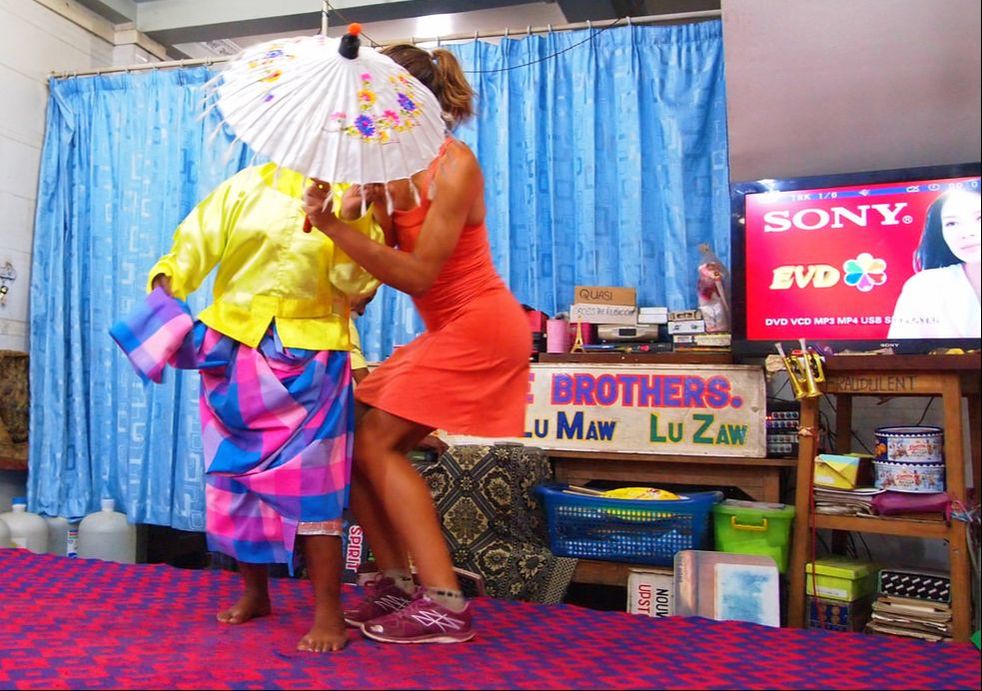

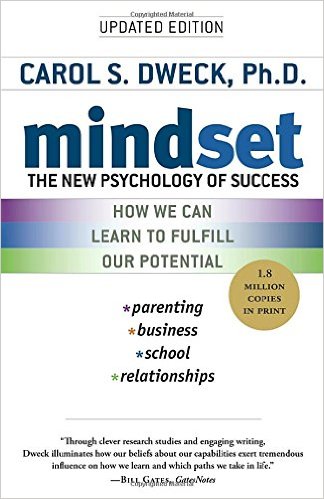
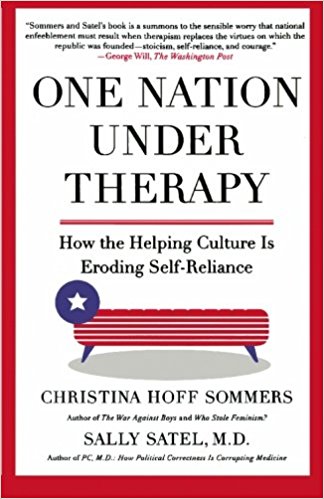
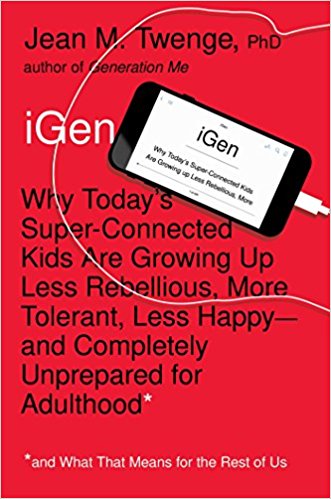

























 RSS Feed
RSS Feed